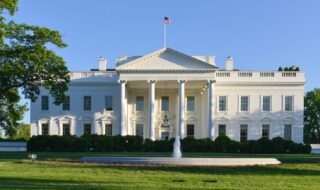Topics:
June 1, 2022 Last Edit: June 5, 2025
Walz, Lawmakers Mull Special Session
Minnesota Legislative Session Ends Without Spending, Tax Deals
- Full State Subtraction for Social Security Income (FY 23-25: $1.63 billion)
- Convert/Increase Renter’s Property Tax Credit to Income Tax Credit (FY 23-25: $764 million)
- Reduce First Tier Income Rate from 5.35% to 5.1% (FY 23-25: $660 million)
- Increase Child & Dependent Care Credit (FY 23-25: $170 million)
- Additional CARES/ARP Federal Pandemic Relief Tax Conformity (FY 23-25: $100 million)
- Broadband: ~$160 million in federal funds and $50 million in state funds for broadband expansion (FY 23-25)
- Mental Health: $100 million mental healthcare package (including important reforms to prevent release of people deemed incompetent to stand trial)
- Drought Relief: $8 million for drought relief expenses incurred by livestock and specialty crop producers impacted by the 2021 droughts (must be in USDA designated natural disaster area between 7/19/2021-1/1/2022 (application and other details to come)
- UI Tax Relief: Facing a $2.7 billion deficit in the state’s unemployment insurance system, the Legislature (belatedly) agreed to wipe out the debt and a decade or more of UI payroll tax increases. Hundreds of NFIB Members responded to action alerts on supporting this relief, and we heard from many who were facing staggering increases in their UI bills.
- Reinsurance: For those who buy insurance on their own, rather than getting it through their employers, the reinsurance program is a vital lifeline that prevents double digit health insurance premium increases. Reinsurance has prevented the collapse of the private individual market over the past five years. This deal continues the stabilization program for three years.
State:
Get to know NFIB
NFIB is a member-driven organization advocating on behalf of small and independent businesses nationwide.
Related Articles

July 11, 2025
ICYMI: Watch the Latest NFIB Minnesota Webinar
NFIB Minnesota recently held a webinar to discuss what happened during the…
Read More


July 10, 2025
Historic Legislation Becomes Law and Stops Massive Tax Hike on…
The One Big Beautiful Bill Act is signed into law, permanently extending th…
Read More


July 10, 2025
LISTEN: NFIB LA Director Talks Insurance Reform, Tax Relief, an…
Leah Long legislation making the 20% Small Business Deduction permanent was…
Read More


July 10, 2025
New Hampshire Supreme Court Weighs In on Statewide Property Tax
State Education Funding and Property Tax under have been under scrutiny for…
Read More







